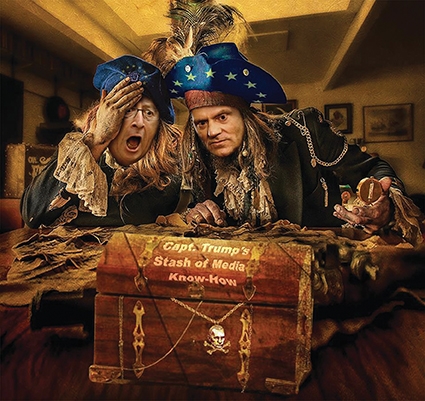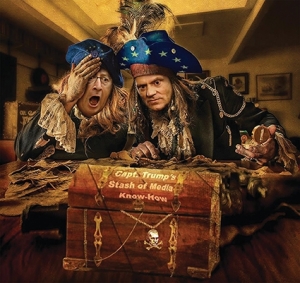Learn from Failure – The EU’s Quest for Media & Communications Competence
INTERVIEW
With PEOTUS running rampant on Twitter and the Kremlin using its honed skills at disinformation to sell their escapades in Ukraine and Syria as means to peace and security, the ineptitude of the European Union to string up a coherent, needs-based communication policy with its vulnerable neighborhood becomes more and more alarming. On online and social media alike, the EU’s voice is muffled and all too convoluted to be relatable, let alone charismatic and inspirational. Courtesy of Konrad Adenauer Stiftung’s Excellency School, GEORGIA TODAY spoke with Lithuanian professor Nerijus Maliukevicius, who has been researching modern information warfare for some time now and authored several books on the subject.

How does the European Union’s communication policy work and is it effective when confronting the tide of Russian propaganda?
While the Western Europe was certainly caught off-guard, for Baltic States by no means was. However tempting it might have been for our western neighbors to think that Putin’s Russia would somehow accommodate itself as a constructive player in international relations is naught but wishful thinking. And sadly, it’s not like it happened overnight – there was plenty of time to take notice as first Georgia, then Ukraine and now Syria have become testing ground for Russia’s hybrid warfare tactics. And it was done in Baltics, too – just look at the series of referendums for a second national language in Latvia, for example. And now we’re in a quite paradoxical situation; all of a sudden, we in the Baltics and Eastern Europe became more knowledgeable, the go-to-and-ask-them expert guys when it comes to Russian hybrid warfare. And in this regard, having effective communication with Western neighbors and partners is essential if we want to tackle this issue. It’s not like the West has no experience of its own – but they somehow seem to have managed to forget the Cold War.
Would you say the EU was ill-suited and unable to adapt to the new media, digital reality that Russia offered?
When it comes to the aggressive communication that Russia is so adept at, the European Union is miles ahead and, as I mentioned, was caught off guard when faced with it. We see that they are now slowly realizing this, building counter-strategies, trying different approaches. One of those counter-measures was the creation of East Stratcom, a task unit to counter Russia’s disinformation campaign and I think it is just a start, a small part of the grand puzzle. Another crucial nuance the EU seems to realize is that countering Russia just outside its borders is not enough –Russian propaganda is equally dangerous inside the member countries, too, well demonstrated by the recent wave of populism.
Is there enough unity in the EU to put up a robust, common narrative with the current dis-unification of Europe that we seem to be witnessing?
I don’t have such illusions, no. What I think the EU should use is a bottom-up approach, not top down. It means that each country, separately, in lieu to its national interests and security, should devise a set of regulations to handle this issue. Each country has to decide how to handle its own strategic communications, but in the wider framework of the EU policy. One thing we all could benefit from is teaching the population to be more critical to what they read, watch, or hear from media – in short, greater media literacy is needed. Quick response teams that can tackle the disinformation and expose propaganda are another key component. And this is happening in the Czech Republic for instance, in Germany, in other countries. It’s a welcome development and the quicker and more instant their response is, the better - leaving fake info unattended runs the risk of them eventually being turned into popular truths.
What about the leverages of social media that Russia (and overseas, the US) seem to be so adept at using? How effective is the EU’s social media in making its voice heard?
The EU was completely unprepared for the revolution brought about by social media. And the EU wasn’t alone in this as traditional media in the US wasn't ready for this revolution either…
Whoever was, seemed to reap great benefits. Obama’s mega-successful social media campaigns during his election periods and the tricks Trump is pulling on Twitter…then there’s RT, with its massive social media presence, that they so masterfully use to rile people up. We don’t see that happening in the EU, do we?
It won’t happen overnight. However, we do see how fake news is spun around in social media and what great effect it has. The EU, with its slow, bureaucratic mechanisms isn’t exactly what you’d call a social media animal. It’s a challenge they aren’t up to at the moment. Only when the EU, and Germany specifically, feel the pains of what this inactivity may bring (and they are already feeling this with Brexit), then there is hope for an overbearing strategy to delve into social networks with serious initiatives. Learn from failure – I don’t see any other solution.
Vazha Tavberidze












